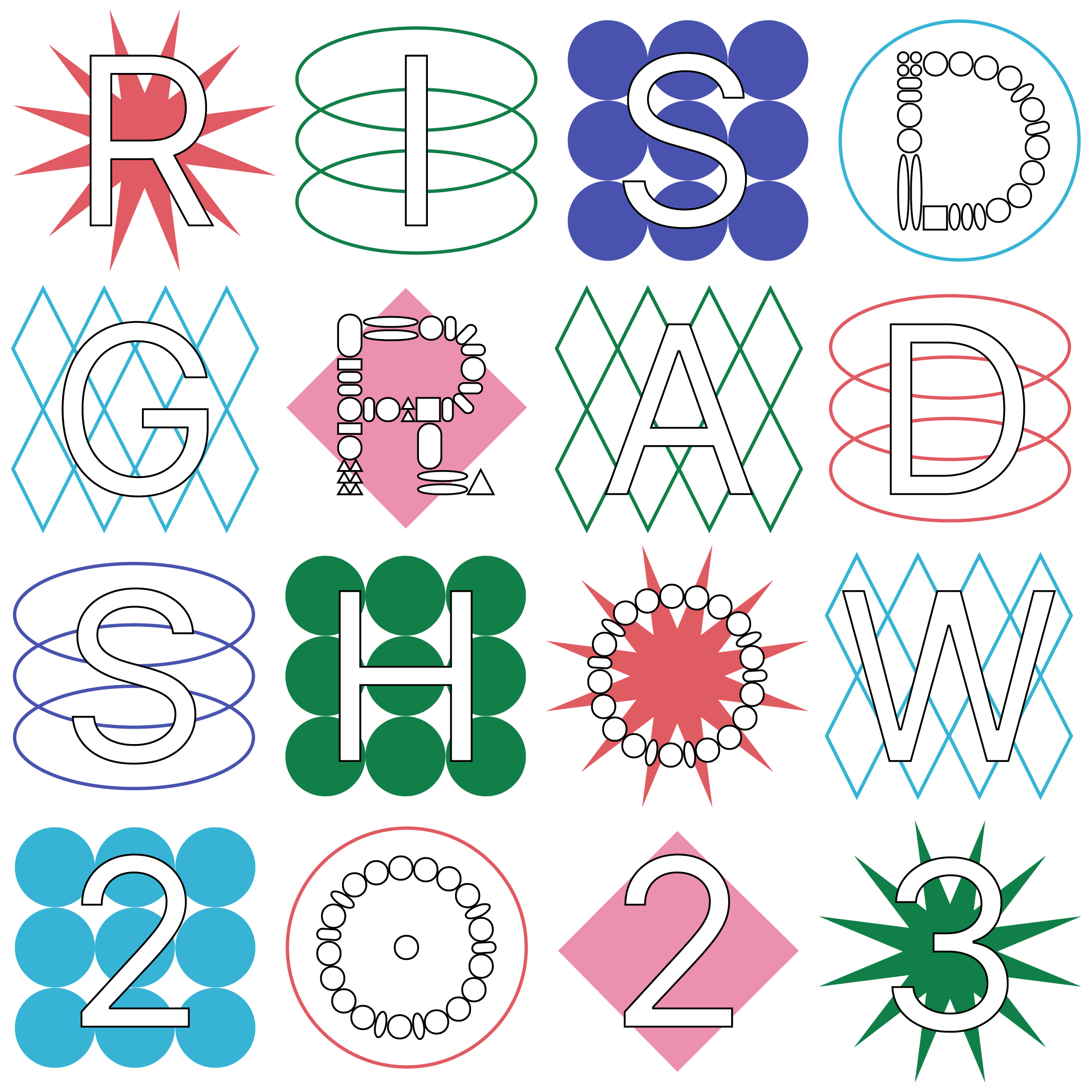Image
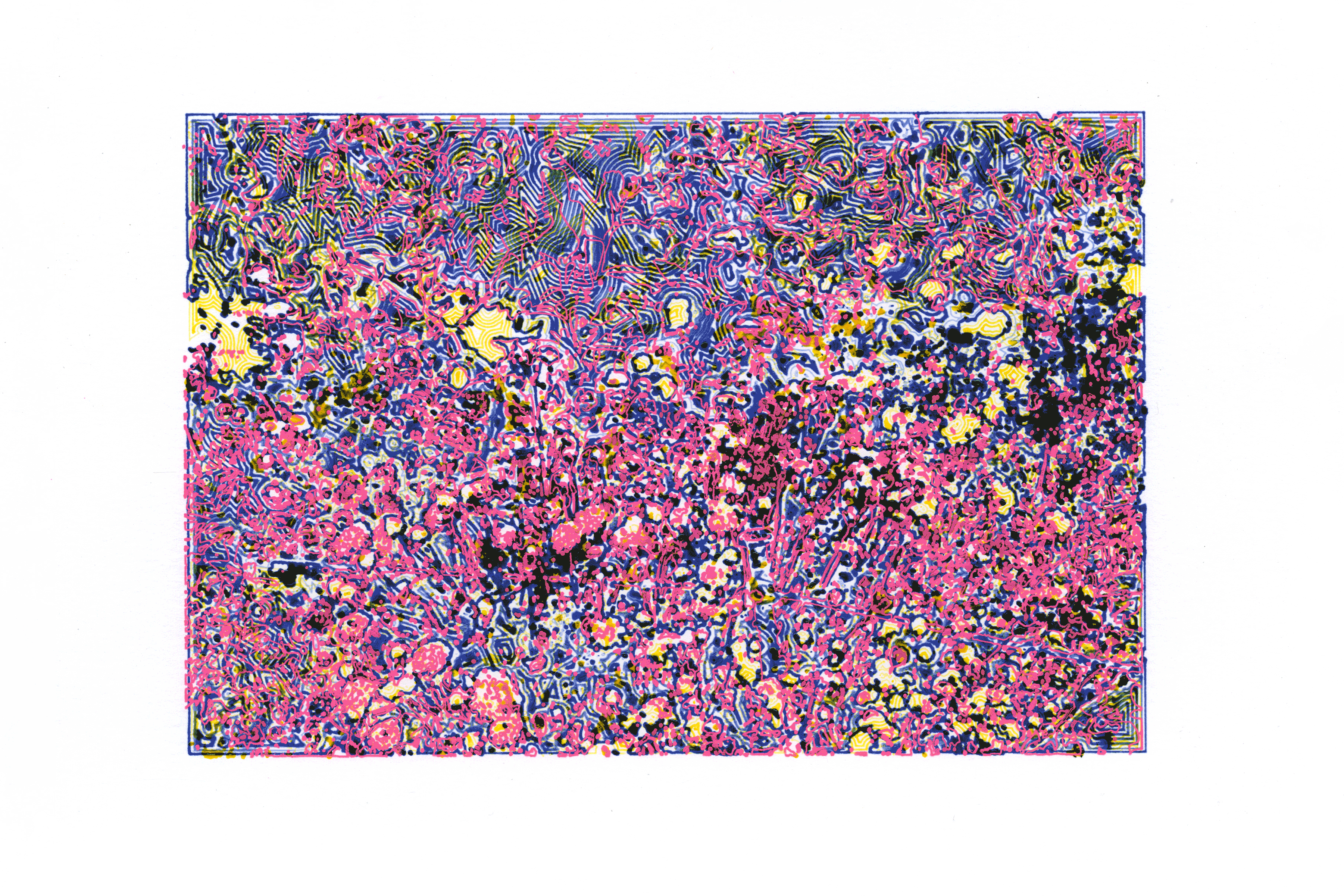
Ingrid Schmaedecke
Particular Proceedings
Particular Proceedings is the outcome of an ongoing quest to understand the origins and motivations of my creative process as a designer.
By continuously pairing early influences and experiences — such as architecture and woodworking — with recurring interests, I gather a view of my methods and, with that, a reframing of my affinity to designing: an intimate relation between material, maker, and content, with meaning often arising out of that process.
In this thesis, I demonstrate, through projects, conversations, and essays, how this relation operates in different scenarios and through different lenses of inquiry. I alternate perspectives, repurpose ordinary materials, and reshape actions between myself and different tools and techniques by crafting graphic forms: posters, typography, books, videos, and objects
Image
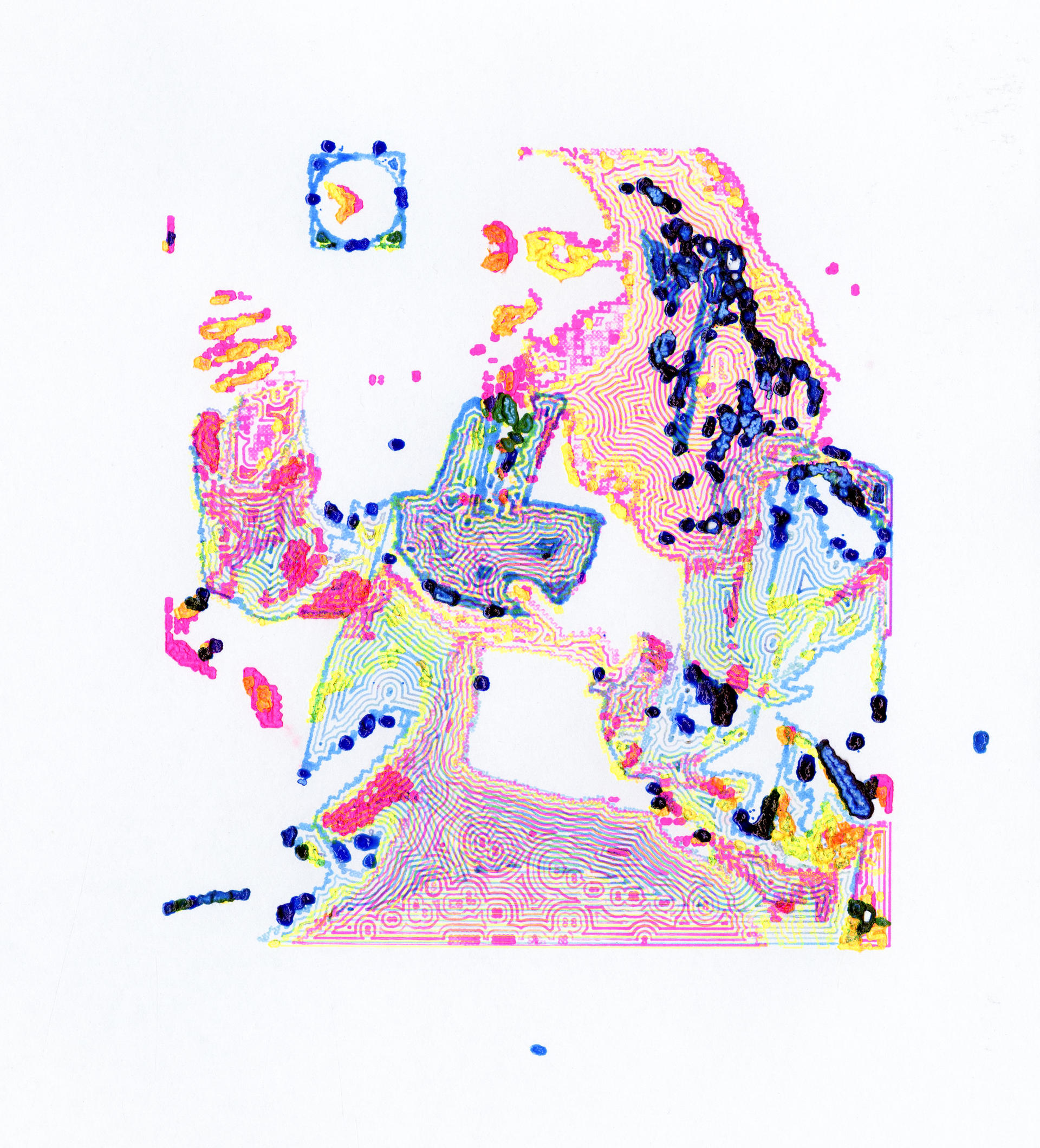
Studio Ramen
Gel pen on paper
8 x 10"
2022
I appreciate time as a component of the making process: seeing an image being constructed, visibly, rather than being spat out from an inkjet or laser printer. The results are completely different. The plotter responds only to vector lines and not fills, so the image to be pen plotted has to be designed with that in mind.
I learned about layering inks and different types of pens, and how they react to different papers. The materiality of ink on paper is something that excites me to try more combinations and effects. I find enticing the slight randomness that this process has.Its slight imprecision makes each plot unique
Image

Brooklyn Botanical Garden
Gel pen on paper
6 x 9"
2022
In that sense, I understand the acts of designing with the pen plotting in mind (setting the machine, and watching over the plotter for the file to be printed with no impediments — for instance, the pen becomes loose, the pen runs out of ink, the paper gets crumbled etc...) have some intrinsic characteristics that live at a distance from graphic design.
If graphic design is about communicating to a wide audience, or mass communication, is a single, unique piece of print, graphic design? Is it graphic design if the subject matter is graphic design? Does it become graphic design after I scan it and put it on a website, on a poster, or in a book?
Image
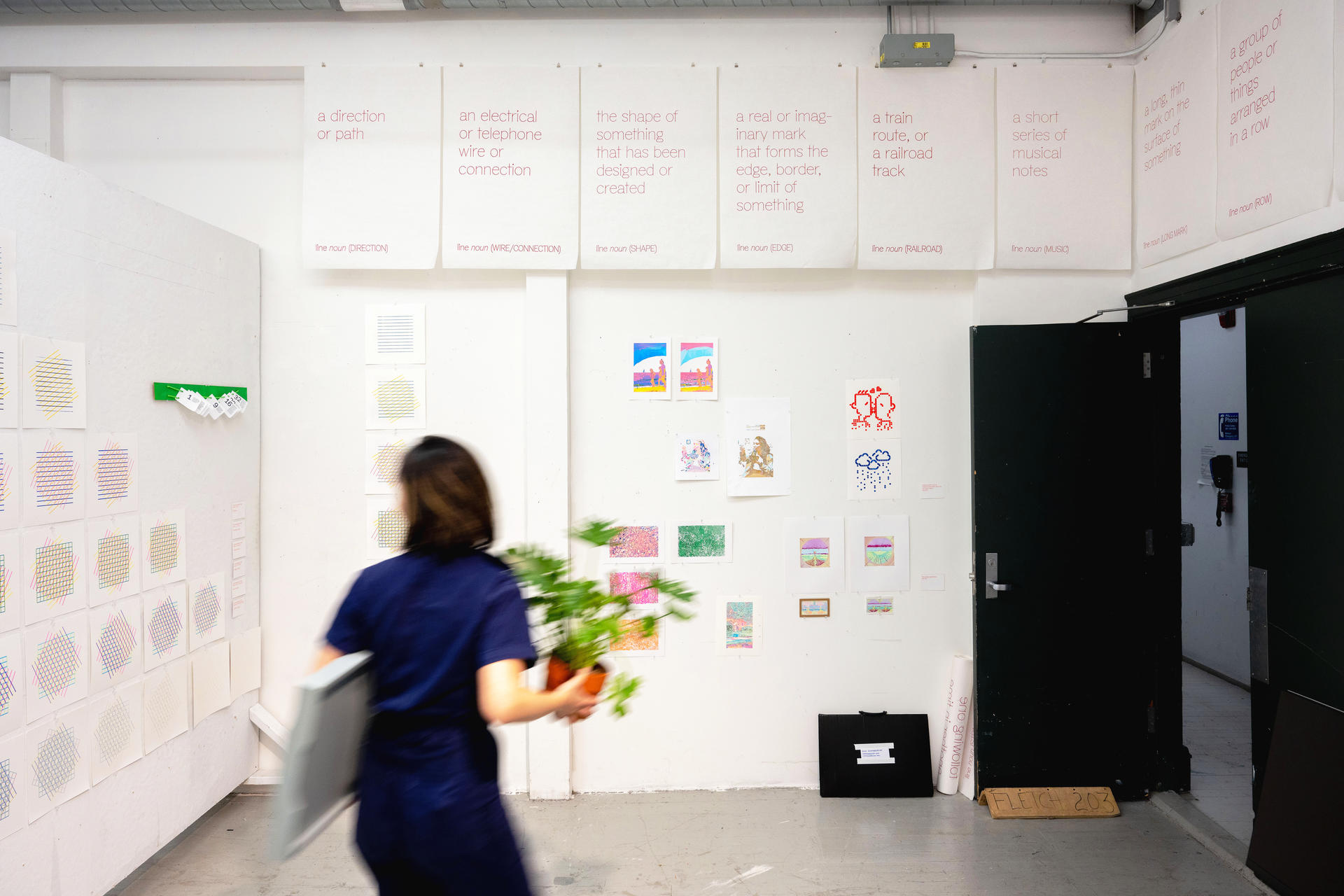
DEcember Review
(photo by Ben Denzer, featuring Sun Ho)
Display of various works.
2022
Display of various works for December 2022 reviews.
Zoned Out
Video
3'10"
2022
This video addresses the inability to focus, or hyper-focus, on multiple trivial things simultaneously. It's a short, yet realistic response to feelings of guilt and exhaustion relating to the overall process of attempting to create something quickly when creativity does not come naturally.
The archetype of the book as the ultimate source of knowledge is the proxy that contains digressive little thoughts, represented through the apparently random images and looped videos that pop out as the narrator flips the pages. A sense of irony is conveyed by the titles: How the Mind Works, Blink, Deep Work. The more the narrator digs deeper into their own mind, the more they pluck from these serious books and through caption-like short sentences, giving rhythm and context to the progression. Being inside the narrator’s mind is enhanced by the overhead camera, placed at a messy working desk.
Typescape
Website
2022
A screen-recording of the Typescape website, viewed through the Layers tab, in the Inspector tool of Google Chrome. This piece can only be fully understood when viewed from a different angle.
Image

Typescape
UV printed PETG
7.25×5.5×0.75"
2022
Typescape, as a materialized object. The angle interferes in how the image of the letter is perceived, which is very akin to the visualization in the Layers tab.
Each layer of the sculpture was UV printed (according to the website design) hand cut in a bandsaw, and sanded together in position (which melted the piece in a block). At that point, the result was still very rough, so I used a heat gun to slightly melt the exterior layer to achieve a glass-like effect.
Image
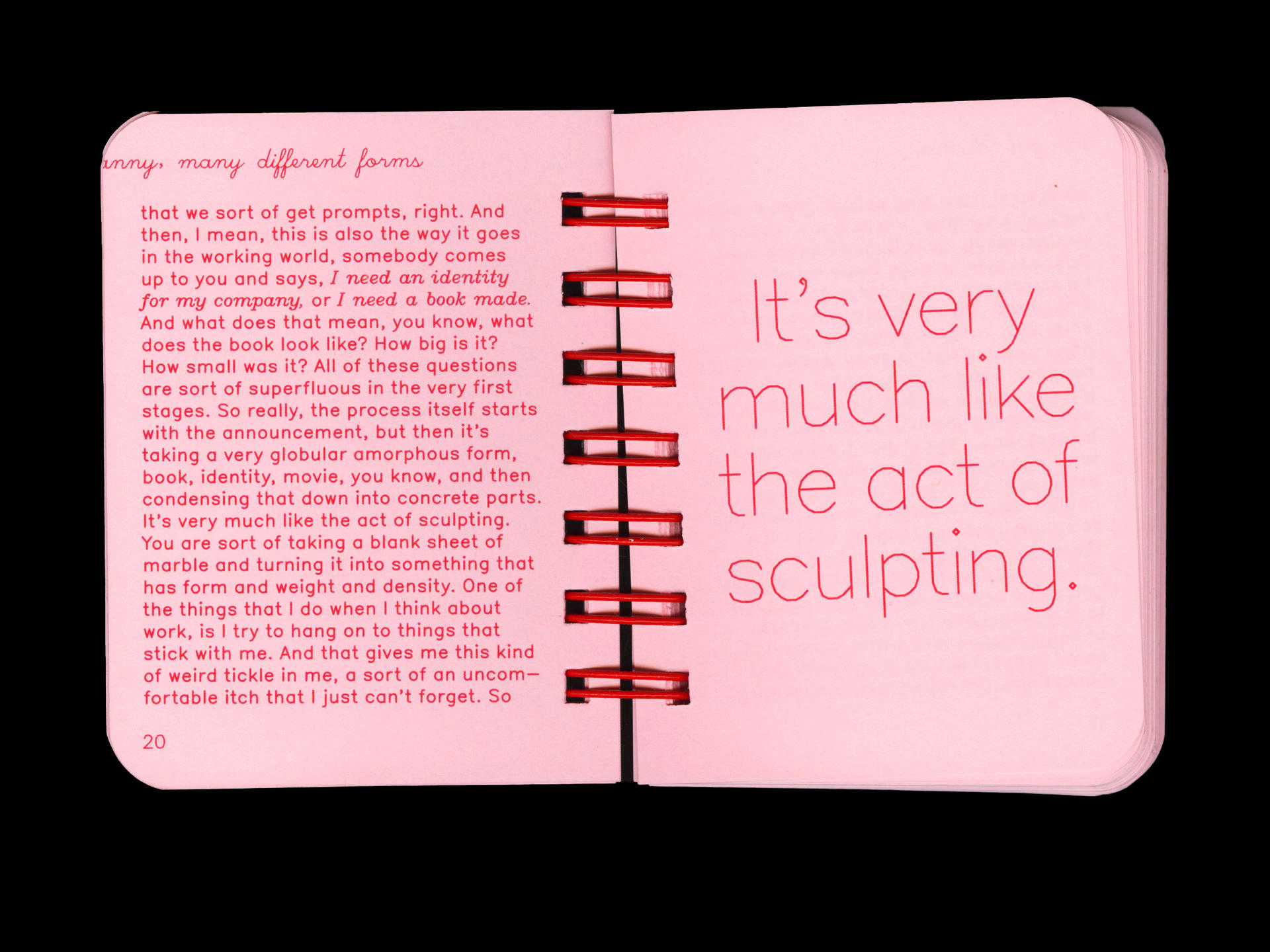
When does a project start?
Wire-bound book
3.25×4.5", 242 pages
2023
I’m interested in understanding my own creative process as a designer, and how that’s changed from how I worked prior to grad school, and prior to graphic design. I learn a lot by going to people’s desks around the studio and asking them: “how do you do this?” or “how did you think of that?” The habit of reaching out to others prompted me to address my cohort (and some other people I’ve been fortunate to encounter during my time at RISD) about their creative processes. I’ve compiled what I heard in this book.
Rights of Nature
Video
4'20"
2020
Between 1888 and 1913, the North American physician and botanist Romeyn Beck Rough published The American Woods, an extensive catalogue, composed of 14 volumes. Each volume is a disguised box that contains a set of 25 cards, showcasing three different section cuts of species of trees found in North America, and an instructive book. In total, Hough catalogued 350 species.
Be it for curiosity, science, love or profit, human activity has been dramatically and growingly altering the environment. Throughout this research, I came across the concept of Rights of Nature: the idea of a non-human entity being a subject entitled of rights.
The binomial of man vs. nature has a direct consequence in nature being seen as property, as a go-to place to harvest resources.
Forever Chemicals
Installation, acrylic box with UV light and rubber gloves, and screenprinted ephemera of various sizes
32×16×12" (box) and prints of various sizes
2022
This project draws from a dystopian 2300 scenario in which the Perfluoroalkyl Substances (PFAS), known as “forever chemicals,” became completely out of control and spread, permanently infiltrating human bodies. The impact of it is a reverse on the continuous growth pattern observed since the 1950’s index for Life Expectancy at Birth (LEB), which then reached 19.93 years.
These examples of ephemera are printed with glow-in-the-dark ink, which is only visible under UV light. The installation consists of an acrylic box with a pair of gloves encased within. By inserting your hands in the gloves, a motion sensor sets a timer of 19 seconds — the timeframe in which the light goes on. A sense of urgency is conveyed by the limited time for accessing the information printed on the pages, alluding to the urgency of the subject matter itself.
Image
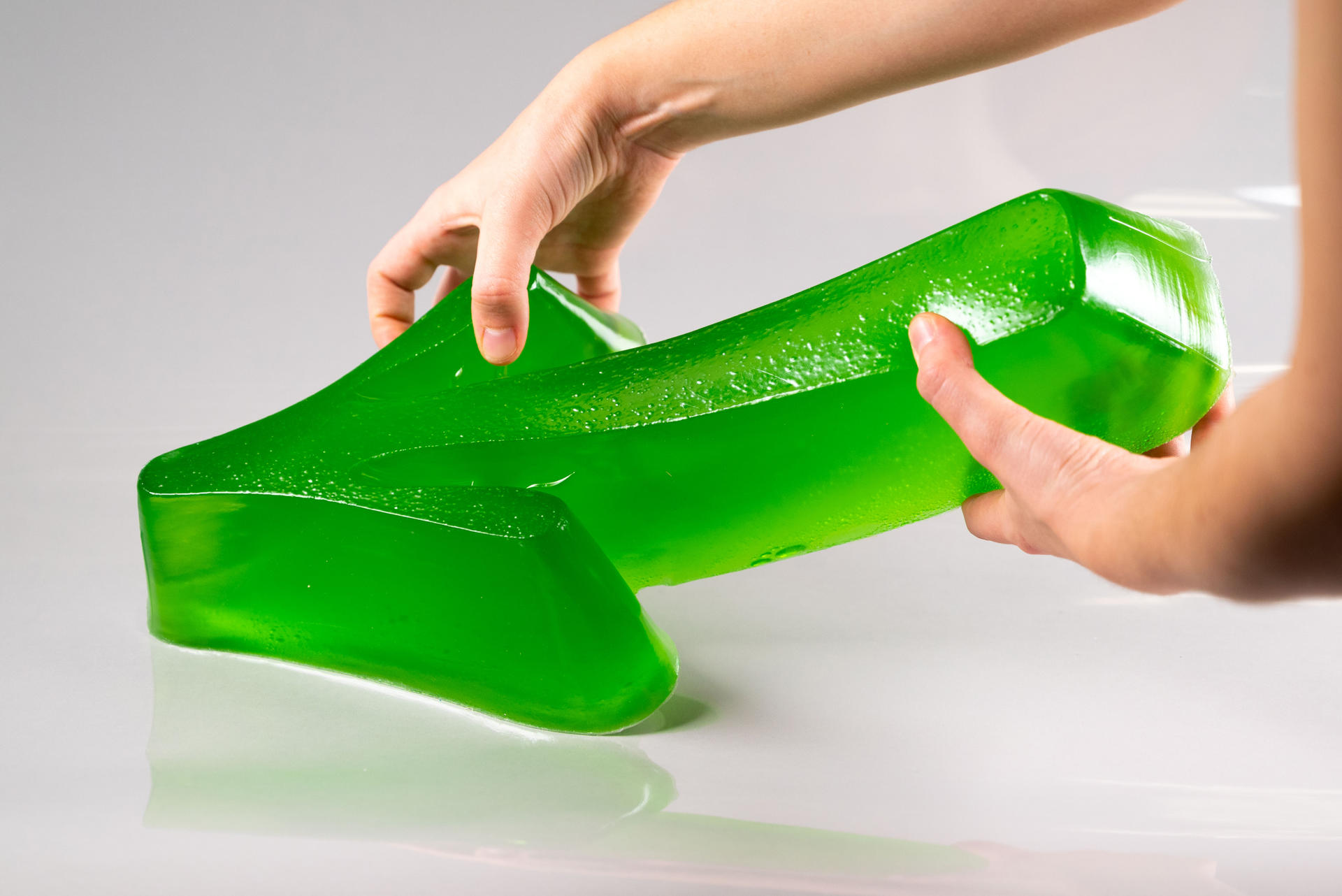
Highlights from the Impermanent Collection – Arrow
Gelatin
15 x 8 x 4"
2023
The green gelatin arrow was developed for the Highlights from the Impermanent Collection, the 2023 RISD Graphic Design MFA Biennial. The show was on view at Sol Koffler Gallery, 169 Weybosset St, Providence, from April 14—30, 2023. The visual identity was developed together with Kaela Kennedy, Lydia Chodosh, and Sun Ho Lee.

